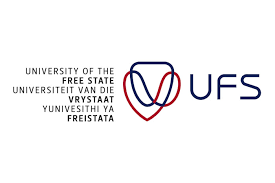Prof. honoured with the UFS Council Medal for outstanding service
Prof Stephen Brown, recipient of the University of the Free State’s (UFS) Council Medal for outstanding service at this year’s autumn graduation ceremonies, says he is deeply honoured and thankful for this recognition.
Prof Brown, Principal Specialist and Head of the Division of Paediatric Cardiology in the Department of Paediatrics and Child Health in the UFS Faculty of Health Sciences – who was nominated by his peers – says it is wonderful to know that all the hard work he has put in over a career (lifetime) is being acknowledged by his alma mater (UFS).
“It is truly a humbling experience to be recognised by one’s peers and to be in the presence of the great individuals who have previously received the award,” says Prof Brown, who is also a paediatric cardiologist at the Universitas Academic Hospital.
During the April graduation ceremonies, one of the UFS’ biggest graduation seasons yet, the Qwaqwa Campus hosted four ceremonies from 14 to 15 April and the Bloemfontein Campus 15 celebrations from 18 to 22 April 2023. A total of 19 ceremonies took place.
Team’s dedication and hard work is recognised
“I started the percutaneous valve programme in 2012 in order to bring this new and modern technology to the Free State,” says Prof Brown. “Prof Hennie Theron and I first started the adult TAVI (percutaneous aortic valve programme) and the first patients in the Free State were treated in the Universitas Academic Hospital. At the same time, I initiated the percutaneous pulmonary valve programme for children and adolescents.
“It has progressed over the years, and we are the only academic unit doing pulmonary valve implantations in South Africa. To my knowledge, we are also the only qualified PPVI implanters in sub-Saharan Africa, and I have performed the procedure in all the major centres in South Africa. I have been personally involved with virtually every valve implanted in the country. Bloemfontein is therefore the centre of excellence for pulmonary valve implantations. The award means that my team’s dedication and hard work has been recognised,” says Prof Brown.
According to him, he hopes this award will serve as motivation to empower the whole team, as he is currently in the last stage of his career. It also emphasises how important it is to keep up to date with the latest technologies and to keep on doing research. His main aim now, says Prof Brown, is to ensure that the UFS and Bloemfontein remain the leaders in the field. His colleague, Prof Daniel Buys, Associate Professor in the Department of Paediatrics and Child Health, has been involved in the programme from the start, and will ensure its continuity.
Research focus
Where Prof Brown’s research was predominantly interventional in nature, his focus has now shifted towards the epidemiology of cardiac disease, especially in the Free State. This was the result of the team’s extensive paediatric cardiac outreach programme and his involvement with the Robert WM Frater Cardiovascular Centre.
“I have several PhD and master’s students whose work focuses on epidemiology,” says Prof Brown. This is important, since cardiovascular diseases will become the most important non-communicable health problem in the near future and will aid in planning the effective delivery of services for our region. We have seen that cardiovascular disease epidemiology is shifting and that all the residents of central South Africa have similar risk factors to those in the rest of the world. Especially disconcerting is the unusually high prevalence of hypertension in our population, which will obviously lead to cardiac disease in the future. This highlights the importance of epidemiological research, since it is apparent that hypertension screening needs to be improved in central South Africa.
“I am also still working with my Belgian colleagues to describe the physics of the Fontan circulation. These have been the most cited articles during my career. Of course, children will always remain my passion, and we have looked at the epidemiology of single ventricle outcomes in the Free State – alarmingly, it became evident that distance from the regional/central hospitals is a major impediment, causing these new-borns to present late and demise. The first stage in management appears to be the most crucial, and our results in those who survive the first stage of palliation are similar to the rest of the country,” he concludes.
Prof Brown and his team of paediatric heart specialists initiated an outreach programme, which started back in 2016, allowing them to travel to rural areas in the Free State to diagnose heart defects in babies early. This life-saving collaboration initiative between the UFS, the Mother and Child Academic Hospital (MACAH) Foundation, and the Discovery Fund started five years ago to help curb the death of young patients due to congenital heart disease, and to make services more accessible to rural communities.

